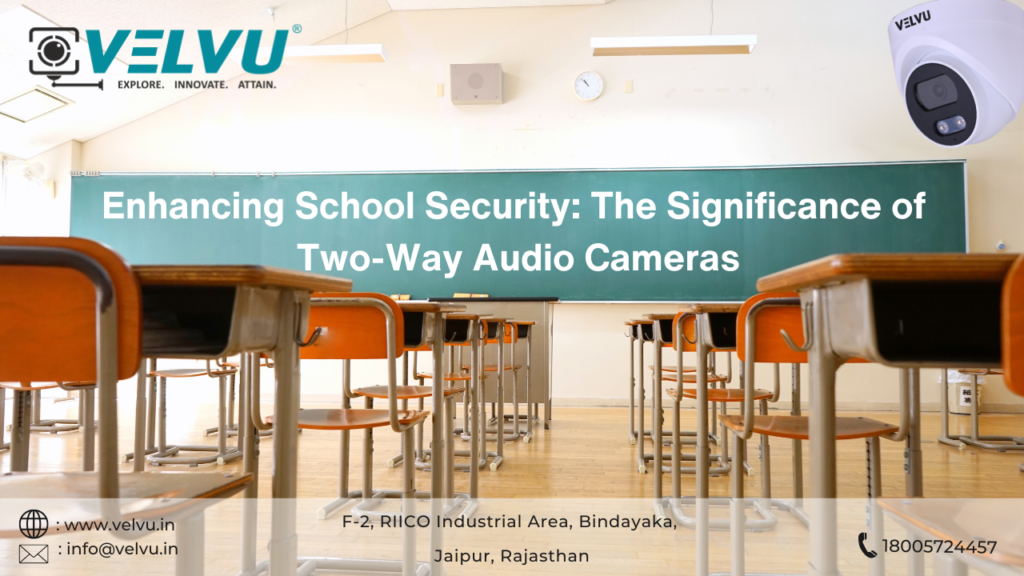In an interconnected world, where technology has become an integral part of our daily lives, ensuring the security of your CCTV cameras has never been more critical. The potential risks of CCTV camera hacking can be alarming, ranging from privacy invasion to compromising sensitive information. As a vigilant user, protecting your surveillance system from cyber threats is paramount. Ten essential tips to safeguard your CCTV cameras and maintain the sanctity of your security.
1. Change Default Passwords: The first and most crucial step in preventing CCTV camera hacking is to change default usernames and passwords. Default credentials are widely known and make it easier for hackers to gain unauthorized access. Create strong, unique passwords for each camera and ensure they are a combination of letters, numbers, and special characters.
2. Keep Firmware Updated: Regularly updating your CCTV camera’s firmware is crucial to address potential security vulnerabilities. Firmware upgrades from manufacturers that include security patches and improvements are frequently made available. Stay informed about the latest updates and promptly install them to fortify your camera’s defenses against potential threats.
3. Use Secure Networks: Ensure your CCTV cameras are connected to secure and password-protected networks. Avoid using public or unsecured Wi-Fi networks for surveillance purposes, as they increase the risk of unauthorized access. Employ encryption protocols like WPA2 or WPA3 for Wi-Fi networks to add an extra layer of protection.
4. Enable Two-Factor Authentication (2FA): Implementing two-factor authentication adds an additional security layer to your CCTV camera system. With 2FA enabled, even if hackers manage to obtain your credentials, they won’t be able to access your cameras without the secondary authentication method, such as a one-time code sent to your phone.
5. Isolate Your CCTV Network: Separate your CCTV camera network from your main business or home network. This segregation prevents hackers from gaining access to other sensitive devices if they compromise your surveillance system.
6. Regularly Monitor Camera Activity: Monitor your CCTV camera activity regularly for any suspicious login attempts or unauthorized access. Many modern surveillance systems offer logs and alerts, enabling you to stay informed about any potential security breaches.
7. Disable Unnecessary Features: Disable any features or services on your CCTV cameras that you do not need. Often, disabling certain functionalities can reduce potential attack vectors and make your system less vulnerable to hacking attempts.
8. Use Secure Remote Access Methods: If you need remote access to your CCTV cameras, use Virtual Private Networks (VPNs) or secure remote access tools. VPNs encrypt your connection, ensuring that your camera feed remains protected during remote viewing.
9. Regularly Backup Footage: Frequently back up your CCTV camera footage to a secure location. In case of a security breach, having access to backup footage can be invaluable for investigation and evidence purposes.
10. Choose Reputable Brands and Suppliers: Opt for reputable CCTV camera brands and trusted suppliers. Established manufacturers prioritize security and continuously update their products to stay ahead of potential threats.
Conclusion: As the digital landscape continues to evolve, protecting your CCTV cameras from hacking attempts is essential for maintaining your privacy and security. By implementing these ten vital tips, you can fortify your surveillance system against potential cyber threats, ensuring peace of mind and confidence in your ability to safeguard what matters most. Remember, proactive measures and continuous vigilance are key to thwarting hacking attempts. Stay informed about the latest security practices, keep your devices updated, and prioritize the protection of your CCTV camera network. By doing so, you can confidently embrace the benefits of surveillance technology without compromising on security.








